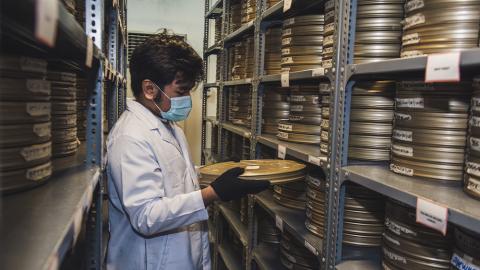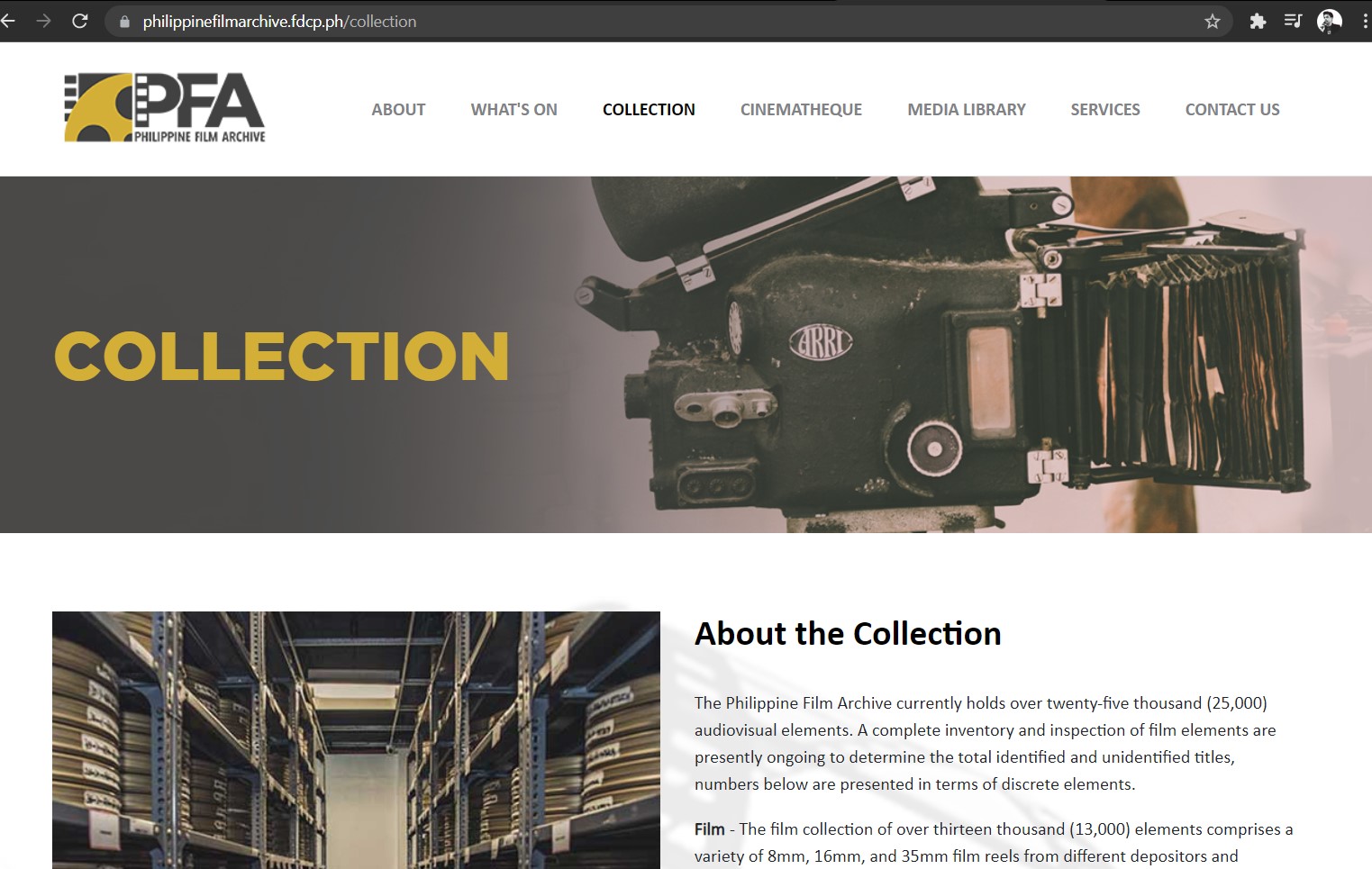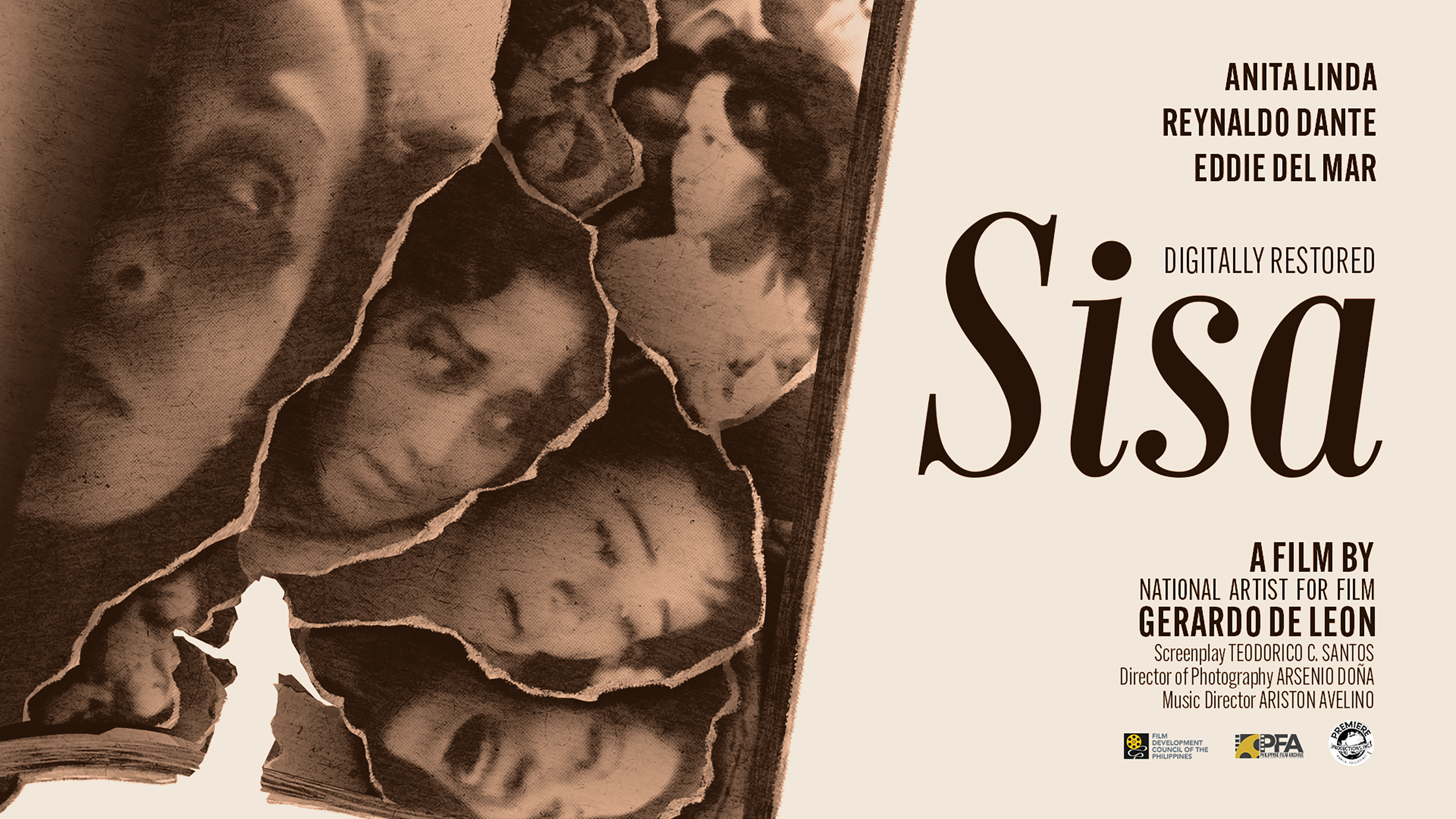Philippine Film Archive's Website Launch Features Film Catalogue, Media Library, and Archival Services

MANILA, PHILIPPINES, SEPTEMBER 28, 2020 — At long last, the Film Development Council of the Philippines’ (FDCP) Philippine Film Archive (PFA) has a repository of its outputs and all the efforts that it has been doing over the years in the form of a website that is accessible to the public.
The PFA is a division of the FDCP which collects, preserves, protects, catalogues, manages, and provides access to film and other audiovisual materials with artistic and cultural importance. It launched its official website on September 28 through a Facebook live session hosted by Issa Litton and Paolo Abrera with guests Ricky Davao, Rap Fernandez, and Jun Urbano who shared their experiences on working on the restored films of PFA and depositing collections to the Division.
The PFA website (philippinefilmarchive.fdcp.ph) was more than a year in the making and while the development of the website may have been quick, creating the database and catalogue has been a painstakingly tedious process.
FDCP's Coffee Convo with Issa Litton and Paolo Abrera featuring guests Ricky Davao, Rap Fernandez, and Jun Urbano featuring PFA Head Don Gervin Arawan
A Steenbeck ST701 C 35mm flatbed editing table
FDCP Chairperson and CEO Liza Diño commented, “Maintaining the PFA, which is among the mandates of the FDCP, is paramount to effectively archive and protect our cinematic heritage. The launch of the PFA website will greatly help in promoting the fascinating endeavor of archiving as well as in bringing attention to the historical and cultural significance of film archives.”
Among the website’s most significant features is the Collection tab that presents the PFA’s materials which are categorized into the Film Catalogue and Non-Film Collection sections. So far, the PFA Film Catalogue has over 2,000 titles with their corresponding metadata, and website visitors can search for films by typing the title or sorting titles out by type, genre, and year of release.
The Non-Film Collection has Posters, Tools and Equipment, Books and Journals, and Others. Some of the tools and equipment are still being used at the PFA to this day while other non-film assets can provide information for students, researchers, and film enthusiasts who want to learn about past filmmaking technologies.

Other highlights in the Collection tab are the guidelines on film deposits, plus the PFA’s humble call for donations because maintaining the national film archive has proven to be costly.
On the other hand, the Media Library tab, with around 100 titles thus far, allows visitors to view clips from films that can be searched by title or sorted by type, genre, and year. Those who want to watch films in the Media Library must submit a viewing request, although viewing can only be done within the PFA premises. The PFA also encourages visitors to submit film reviews that will be posted in the Media Library.
On the Services section of the PFA website are the audiovisual resources and film preservation processes that the PFA is offering to the public for the first time: film viewing, media library, film research, film inquiry, scanning service, request for clips or footage, film screening (film festivals and theatrical), digital transfer, screener request, and the Intellectual Property Protection Program that helps report the illegal use of films.
Other features also include informing visitors of the events that the PFA is involved in and allowing visitors to send an online inquiry if they want to suggest additional archival services or would like to bring up other concerns.
“The PFA has been one of the most silent divisions of the FDCP. Our Chairperson loves what we are doing in the film archive and she really wants to share this to the public,” said PFA Head Don Gervin Arawan. “We hope that people will find the website informative and useful especially to students and film enthusiasts.”
“We would like to encourage everyone, including fellow archivists, film critics, and the like, to visit and share the PFA website. It’s an interactive website where visitors can put in their film reviews, request for film viewing, and use it as a source of information not only about films but also on artifacts,” he added.
More titles are expected to be added to the Catalogue as the PFA currently safeguards 26,171 film elements through daily maintenance, digitization, and film restoration. Arawan also revealed that apart from maintaining a catalogue of its own collection, the PFA intends to develop the Philippine Film Catalogue for all Filipino-produced films.
For more information, visit philippinefilmarchive.fdcp.ph.





